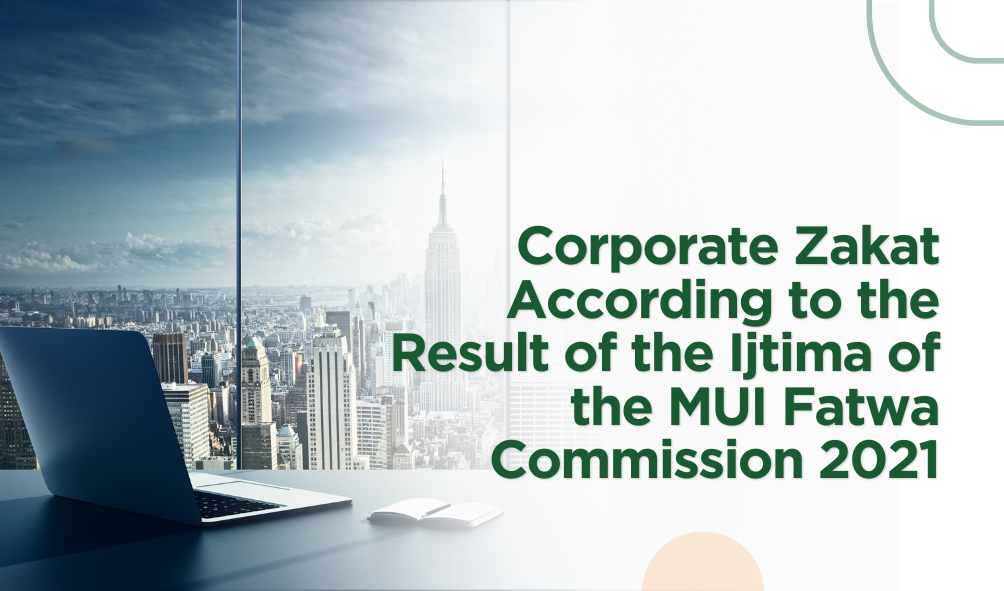Corporate Zakat According to AAOIFI
Zakat is one of the five pillars of Islam, mandatory for Muslims who are financially able. Not only individuals, but companies are also obliged to pay zakat if certain conditions are met. AAOIFI (Accounting and Auditing Organization for Islamic Financial Institutions) has established standards for calculating and paying corporate zakat. This article will explain how corporate zakat is calculated according to AAOIFI and provide practical examples using a balance sheet and income statement.
Definition of Corporate Zakat
Corporate zakat is zakat paid by business entities based on the assets they own. According to AAOIFI, corporate zakat must be calculated annually and paid from the company’s net assets. This obligation is considered crucial because it helps in the equitable distribution of wealth within society.
Conditions for Corporate Zakat
1. Full Ownership: The company must fully own the assets to be zakat. This means the company must have full rights over these assets without any claims or encumbrances from other parties.
2. Reaching Nisab: The value of the assets must reach or exceed the nisab (minimum threshold for zakat). Nisab is usually calculated based on a specific value like gold.
3. One Year Period: The assets must be owned for a full year (haul). This indicates the stability and continuity of the asset ownership.
Also Read: Implementation of The Zakat System in The Modern Era
Method of Calculating Zakat According to AAOIFI
1. Identify Zakatable Assets: All income-generating assets such as cash, receivables, inventory, and short-term investments. These assets should be liquid or easily convertible into cash.
2. Deduct Liabilities: Deduct short-term liabilities from zakatable assets to get the net zakatable amount. These short-term liabilities include debts that must be paid within a year.
3. Compare with Nisab: Compare the net value of assets with the nisab (e.g., equivalent to 85 grams of gold). If the net value of assets meets or exceeds the nisab, then the assets are subject to zakat.
4. Zakat Rate: If the net value of assets meets or exceeds the nisab, zakat is calculated at 2.5%. This rate is the standard percentage applied in zakat calculation.
Practical Example with Balance Sheet and Income Statement
Balance Sheet
| Account | Value (IDR) |
|---|
| Cash and Bank | 1,000,000,000 |
| Trade Receivables | 500,000,000 |
| Inventory | 700,000,000 |
| Short-Term Investments | 300,000,000 |
| Total Assets | 2,500,000,000 |
| Trade Payables | 400,000,000 |
| Other Short-Term Liabilities | 100,000,000 |
| Total Liabilities | 500,000,000 |
| Net Assets | 2,000,000,000 |
Income Statement
| Account | Value (IDR) |
|---|
| Revenue | 3,000,000,000 |
| Operating Expenses | 1,500,000,000 |
| Gross Profit | 1,500,000,000 |
| Operational Expenses | 500,000,000 |
| Net Profit Before Tax | 1,000,000,000 |
Zakat Calculation
1. Zakatable Assets:
– Cash and Bank: IDR 1,000,000,000
– Trade Receivables: IDR 500,000,000
– Inventory: IDR 700,000,000
– Short-Term Investments: IDR 300,000,000
– Total Assets: IDR 2,500,000,000
2. Deduct Short-Term Liabilities:
– Trade Payables: IDR 400,000,000
– Other Short-Term Liabilities: IDR 100,000,000
– Total Liabilities: IDR 500,000,000
3. Net Zakatable Assets:
– Net Assets: IDR 2,000,000,000
4. Compare with Nisab:
– Nisab: 85 grams of gold (Assuming the price per gram is IDR 1,300,000)
– Nisab Value: 85 x 1,300,000 = IDR 110,500,000
5. Zakat Payable:
– Since Net Assets (IDR 2,000,000,000) are greater than Nisab (IDR 110,500,000), zakat is applicable.
– Zakat Rate: 2.5%
– Zakat: 2.5% x 2,000,000,000 = IDR 50,000,000
The calculation of corporate zakat according to AAOIFI is a systematic and transparent process. By following the steps above, companies can ensure they fulfill their zakat obligations correctly. Zakat is not only a religious duty but also a form of social contribution that can support community welfare. By paying zakat, companies participate in reducing poverty and promoting a more equitable distribution of wealth.

Wallahu a’lam
References
- Accounting and Auditing Organization for Islamic Financial Institutions. (2023). Shari’ah Standards. Manama, Bahrain: AAOIFI.
- Abdullah, M. (2018). Zakat Accounting Manual. Kuala Lumpur: Islamic Finance Training.
- Chapra, M. U., & Khan, T. (2000). Regulation and Supervision of Islamic Banks. Jeddah: Islamic Research and Training Institute.
- Kamla, R., & Rammal, H. G. (2013). Social Reporting by Islamic Banks: Does Social Justice Matter?. Accounting, Auditing & Accountability Journal, 26(6), 911-945.







